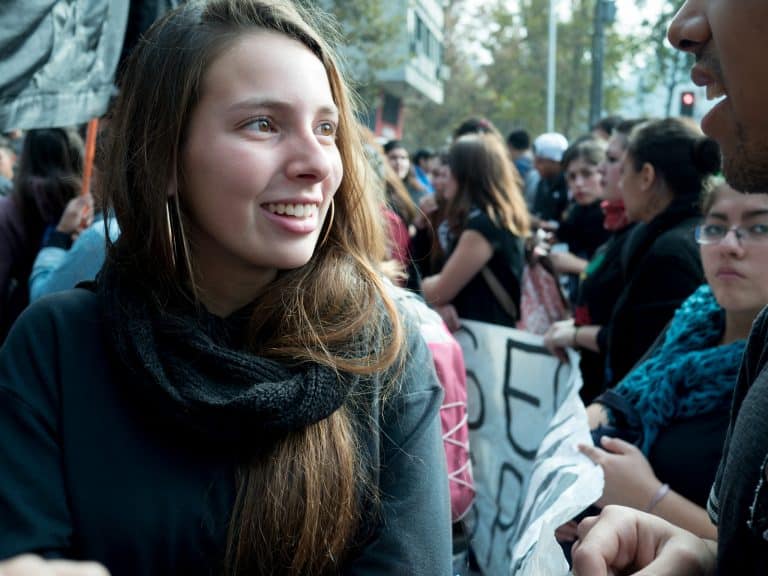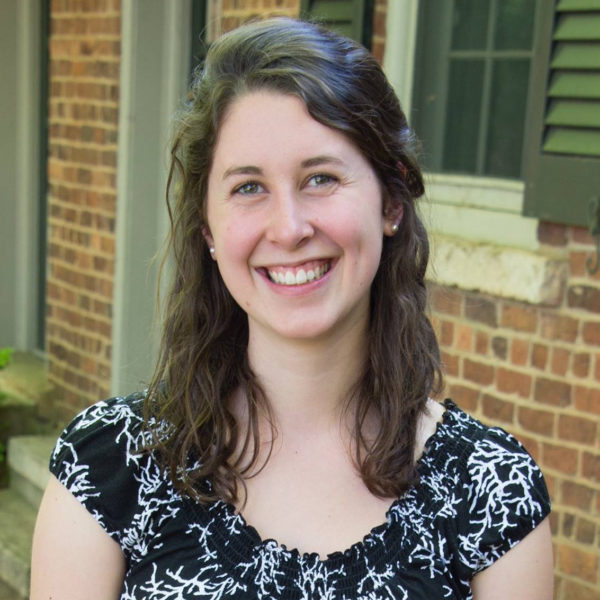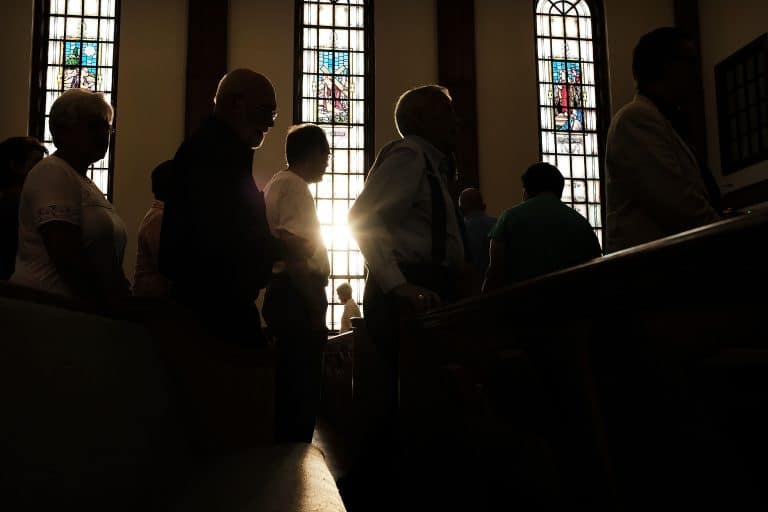
Image by Francisco Osorio/Flickr, Attribution.
How the Wisdom of Millennial Nones Can Revitalize the Christian Church
In the year of the 500th anniversary of the Protestant Reformation, churches in the United States are closing before new theses can be posted on their doors. Many within the mainline Protestant church are mourning the foreseen death of the institution that has given shape to their sense of common life, a grounding center in our pluralistic democracy, for generations.
Two commencement speeches last month reminded me why American Christianity is in trouble. In his commencement address to graduates of Liberty University this year, President Trump outlined his vision of America as a Christian “nation of believers,” aligned with his championing of religious liberty for churches. Vice President Pence addressed graduates of Notre Dame University on the imperative of freedom of speech on college campuses while dozens walked out in protest of his policies. The mainline church suffers from its affiliation with the broader cultural trends of Christian exclusivism, threatened by its own lack of integrity and openness to reform.
These findings lead me to wonder: What if the non-religious, the Nones, held the clues for how to revitalize the dying church?
As a young adult activist and interfaith educator, my life doesn’t match the profile of a typical churchgoer in the South. Yet after working with five church-related institutions, I now am part of the shrinking faction in my generation that adopts a denominational label. I also carry grievances with the white-majority church and often feel isolated within it as a millennial. Especially in the wake of the election, I am turning to my non-religious peers for guidance on community and spiritual life. I think the church needs to do the same.
Facing the decline of young-adult participation, the church’s future lies nonetheless in the hands of millennials, more than one third of whom identify as non-religious. According to the Pew Research Center, rises in the category of “Nones” are not limited to any demographic category; people across racial, socioeconomic, and regional lines have shed religious labels or never inherited them. As Courtney Martin articulates, Nones are more than their absence of religious ties. She, like many others, identifies “with the burden and joy of trying to understand how to be a good human.”
For many young adults, the choice to be non-affiliated is an intentional response to an institution that has failed to embody its own values. In Becoming Wise, Krista Tippett describes Nones as “ecumenical, humanist, transreligious. But in their midst are analogs to the original monastics: spiritual rebels and seekers on the margins of established religion point tradition back to its own untamable, countercultural, service-oriented heart.”
As evidenced by the How We Gather and Something More reports issued by On Being fellows Angie Thurston and Casper ter Kuile at Harvard Divinity School, non-religious leaders are engineering community in less traditional spaces. The need for “soulful community” is clearly present with the sense of isolation reported by young adults, exacerbated by endless mobility and political turmoil in our nation’s engulfing social crisis.
The rising leaders of the millennial generation who often emerge from the margins — the artists, activists, social entrepreneurs, and educators — are building communities across civic and identity lines for the sake of a flourishing, healthy democracy. Religious belief is not a requirement for entry into the doors of millennial sacred spaces.
To be sure, these communities can serve different purposes than the church, and one may claim belonging in both secular and religious spaces. Yet with only two in ten millennials claiming church attendance as important, the institution needs to check its privilege, examine its relevance to “outsiders,” and reconnect with its spiritual practices.
Working in the Chaplain’s Office at Davidson College, I have seen students flock to form spiritual community in non-theistic settings. Our Mindfulness community emerged this year for non-religious and religious students to ask big questions of themselves and the world together, including: How do I relate to religious traditions that leave little space for critique and reform?
Drawing upon the collective wisdom of Nones in my life, I see the need for church to value belonging before orthodoxy, to include people who do not profess faith but who desire intergenerational relationships. Without abandoning its particularity, the church could find its own traditions enriched by those whose values, purpose, and sense of meaning can expand our understandings of faith.
To attract my generation, the church needs to become more actively engaged with social praxis. The Sanctuary Movement is one example of church leaders working in interfaith coalition to protect families and defend the dignity of immigrants. The opportunity to include Nones in the church’s work of social witness could transform uninhabited buildings to become the breeding grounds of courage, love and resistance. As Nathan Schneider describes, young people are calling from the streets, “Church, act like a church.”
What would it look like for the church to ask the people who are leaving, the ones it has silenced, rejected, alienated, or ignored, what they hope to see from the institution? Casper and Angie offer this challenge:
“We invite religious institutions to change so that more of us may become closer to that which never changes.”
To act like the church, it would apologize and repent of its racist and homophobic hypocrisy. It would serve as a community center for spiritual education and social change. The opportunity exists for the church to form collectives of conscience, a hybrid space for neighbors of religious and non-religious values to share life together.
The church’s future is relevant to all of us. In an age when fundamentalism threatens public virtue and receives more airtime for it, moderate and progressive churches are sidelined in the process. These mainline institutions offer perennial wisdom to strengthen our ties to humanity beyond creedal lines; their social histories are complex and evolving. If we seek to reform the institution, from within or without, we can expand our narrow loyalties and form commitments strong enough to fill our social gaps.
While my peers and I flock to protests, book clubs, and yoga classes, we are forging new paths of spiritual engagement. At the same time, I sense that many of us yearn for tradition: a household of inherited practices and beliefs to inhabit as our full selves. Tradition offers resilience, particularly in the face of tragedy and loss, to hold together our fractured identities. Tradition can gift us with the texture of story and depth of ritual to speak across traditions, to foster self-examination and understanding of the other. I hope today for the traditions of the church to open to outsiders’ interpretation while serving as blueprints for ones that others are creating now.
Here I stand by the words of Rainer Maria Rilke:
“I am the rest between two notes which are somehow always in discord.”
I carry enduring hope in the Nones of my generation to build integrity and meaning in the church’s voids, to bring alive its forgotten possibilities. I sing with my feet firmly planted between the worlds, trusting harmony to emerge for the church and its reformers that listen.


Share your reflection